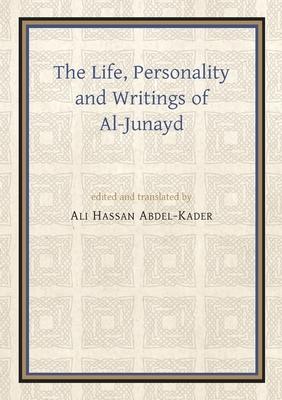
Book
The Life, Personality and Writings of Al-Junayd
(Write a Review)
Paperback
$25.28
Al-Junayd's epistles, addressed to private individuals, are often based upon interpretations of key passages from the Qurʾān. He argues forcefully that the mystic lives again in union with God after the mystic has passed away (fanāʾ). He was one of the first writers in Arabic who tried to express the ineffable and give such expressions the linguistic and intellectual substance of the Islamic theology he had so little fondness for. According to him, the theologians were masters of the quibble, and in their obsession with minutiae forgot about the true experience of the divine.
In his epistles, al-Junayd seeks to fashion and explore an Arabic capable of describing accurately the mystical experience without indulging in extravagance or excess. Yet the Arabic that he wrote in furtherance of his spiritual aims is not easy. It is allusive, tinged with poeticisms, and is characterized by paradox. A.H. Abdel-Kader has successfully translated these difficult writings, which represent an important early document in the history of Islamic Mysticism and spirituality and ninth century religious sentiment.
Originally published in 1962, this paperback edition was prepared in 2014.
Al-Junayd's epistles, addressed to private individuals, are often based upon interpretations of key passages from the Qurʾān. He argues forcefully that the mystic lives again in union with God after the mystic has passed away (fanāʾ). He was one of the first writers in Arabic who tried to express the ineffable and give such expressions the linguistic and intellectual substance of the Islamic theology he had so little fondness for. According to him, the theologians were masters of the quibble, and in their obsession with minutiae forgot about the true experience of the divine.
In his epistles, al-Junayd seeks to fashion and explore an Arabic capable of describing accurately the mystical experience without indulging in extravagance or excess. Yet the Arabic that he wrote in furtherance of his spiritual aims is not easy. It is allusive, tinged with poeticisms, and is characterized by paradox. A.H. Abdel-Kader has successfully translated these difficult writings, which represent an important early document in the history of Islamic Mysticism and spirituality and ninth century religious sentiment.
Originally published in 1962, this paperback edition was prepared in 2014.
Paperback
$25.28